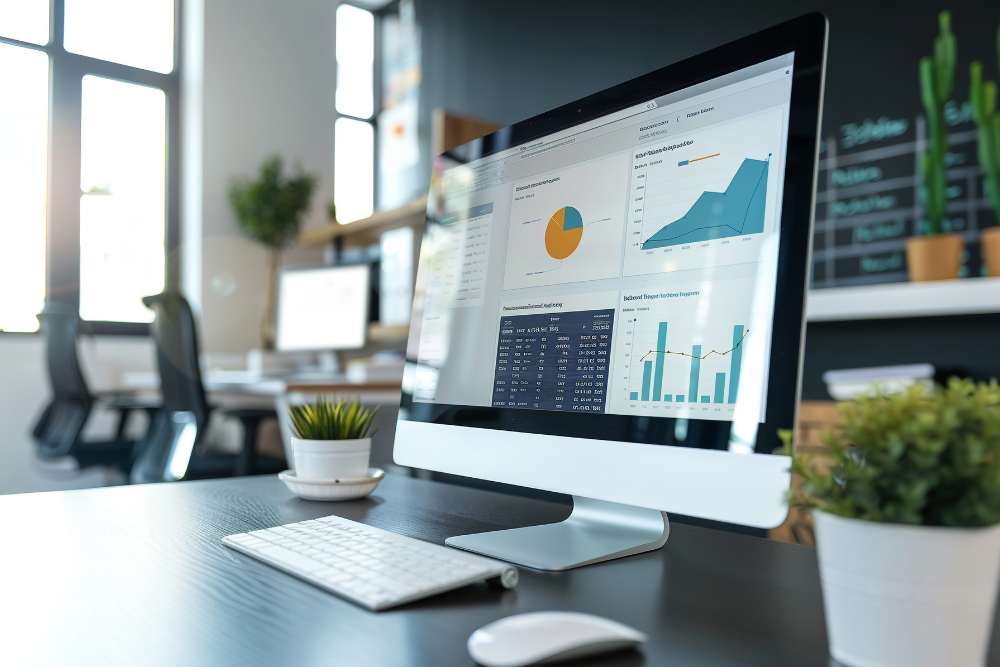Blockchain technology has recently captured significant attention, especially with the rise of cryptocurrencies. While the financial ups and downs of crypto trading often dominate headlines, blockchain’s underlying technology is solidifying its presence and evolving rapidly.
Though blockchain is the backbone of cryptocurrencies like Bitcoin, its implications and potential applications extend far beyond digital currencies. Accountants, in particular, should understand blockchain technology as it will inevitably impact their profession. This article explores what blockchain is, how it functions, and its potential effects on accounting.
What is Blockchain Technology?
Blockchain can be likened to a distributed database without a central server. Data is stored in ledgers within blocks and linked together in chains, accessible by multiple participants simultaneously. Each piece of data is verifiable and permanent, ensuring a high level of security and trust. While access to a blockchain can be restricted, one of its defining features is its decentralized nature.
A key aspect of blockchain is its immutability. Once data is added to the ledger, it cannot be altered or deleted. This creates a reliable and tamper-proof record-keeping system. As Stanford University explained, the decentralized nature of blockchain prevents unauthorized tampering, making it extremely difficult for malicious actors to alter information without detection.
How Blockchain Works
To understand blockchain in action, consider cryptocurrency transactions. Platforms that facilitate the buying and selling of Bitcoin provide digital wallets for storage, similar to bank accounts. When a Bitcoin transaction occurs, it is recorded in a ledger shared across numerous systems, known as nodes.
Transactions are verified by miners who solve complex mathematical problems. Once validated, the transaction is added to a block and linked to the previous block, forming a chain. This entire process is transparent, with all participants able to view the transaction. Miners are rewarded with Bitcoin for their efforts, incentivizing them to continue verifying transactions.
Potential Impact of Blockchain on Accounting
Blockchain technology holds significant promise for the accounting profession, particularly in areas such as auditing and contract management.
Audit
The immutable nature of blockchain records offers a new approach to auditing. With all participants having simultaneous access to the same ledger, the need for multiple reconciliations is eliminated. This could simplify transaction analysis, reduce the complexity of record checks, and minimize the need for external cooperation. Additionally, real-time data updates provide auditors with continuous and immediate access to financial information, streamlining the auditing process.
Smart Contracts
Smart contracts, facilitated by blockchain, can revolutionize payment processes. For example, in the agricultural sector, a farmer can be paid immediately upon the delivery of goods to a distribution center without waiting for the product to reach its final destination. Similarly, in accounting, smart contracts can ensure firms receive payment as soon as work is completed and approved by clients. While not yet widespread, smart contracts are promising developments for the future.
How Could Blockchain Technology Affect Accounting?
Despite its potential, blockchain adoption in accounting faces several hurdles. The sheer volume of transactions can slow down the system, especially during peak times. Regulatory uncertainties and the challenge of integrating blockchain with existing accounting systems also pose significant obstacles.
However, proactive firm leaders who stay informed about blockchain advancements will be better positioned to leverage its benefits. It’s also worth noting that firms using cloud-based applications will find it easier to adopt blockchain technology compared to those managing in-house IT systems.
Conclusion
Blockchain technology, though still in its early stages, offers transformative potential for the accounting profession. By understanding its principles and staying updated on its developments, accountants can prepare to harness its capabilities, from enhancing audit processes to utilizing smart contracts for faster payments. These innovations will likely shape The future of accounting, and those ready to adapt will lead the way.
___________________________________
Frequently Asked Questions
1. How does blockchain technology enhance the auditing process?
Blockchain technology provides a transparent and immutable record of transactions. All participants in the blockchain have simultaneous access to the same ledger, eliminating the need for multiple reconciliations. This transparency simplifies transaction analysis, reduces the complexity of record checks, and minimizes the need for external cooperation. Real-time data updates provide auditors with continuous and immediate access to financial information, streamlining the auditing process and enhancing accuracy.
2. What are smart contracts, and how can they benefit accounting firms?
Smart contracts are self-executing contracts with the terms of the agreement directly written into code. They operate on the blockchain, ensuring that all parties fulfill their obligations before a transaction is completed. For accounting firms, smart contracts can ensure immediate payment upon the completion and approval of work, reducing delays and improving cash flow. This automation can also reduce administrative burdens and enhance the efficiency of financial transactions.
3. What are the main challenges of integrating blockchain technology into accounting?
Integrating blockchain technology in accounting faces several challenges, including the high volume of transactions that can slow down the system, especially during peak times. Regulatory uncertainties add complexity to its adoption, as varying laws and guidelines need to be navigated. Additionally, incorporating blockchain into existing accounting systems can be technically challenging and may require significant changes to current practices and infrastructure. However, firms using cloud-based applications will find it easier to adopt blockchain technology than those managing in-house IT systems.
Want to learn more on how gotomyerp can help you with you cloud-hosted accounting software?




